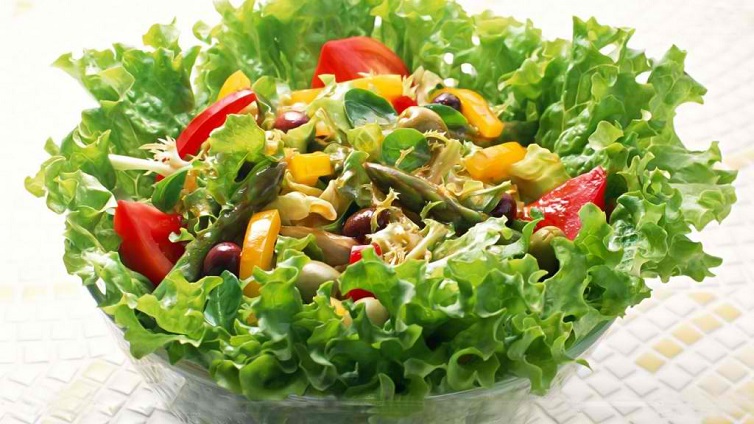Unlike many other chronic illnesses, asthma can start at any age, and can particularly plague children. The disease can drastically reduce one’s quality of life if unmanaged, and while there are different symptoms for asthma the basic pain of constricting airways remains a constant.
While there are many instances of asthma being completely cured, it is still a lifelong disease for many people. Due to this, it has to be constantly managed through medication, lifestyle, and diet.
One thing to understand from the get-go is that there are no scientifically-proven diets that can cure asthma. While some other illnesses can be reversed almost completely through food, asthma almost always needs medication. The food prescribed in this article are meant to support medical steps, not to supplant them.
Food & Nutrition Diet (Meal Plan) for Asthma
#1 Recommended Breakfast Diet for Asthma

An apple a day keeps the doctor away, especially for asthma. Apples have been proven to help improve the circulatory system, helping the lungs take in and absorb a greater quantity of air. As a plus, apples are great morning food as they can wake you up just as well as coffee — and without the caffeine!
Speaking of caffeine, coffee also helps in improving the airway. It can be used as a quick fix, since the effect lasts for around 4 hours from consumption.
If coffee is not for you, milk is also another common breakfast fare — so long as you’re not allergic to dairy. Milk has a lot of VItamin D, which also helps in easing asthmatic symptoms.
#2 Recommended Lunch Diet for Asthma

Meat cannot directly affect the symptoms of asthma, so you have a lot of options when it comes to lunch fare. The only thing you have to take care not to eat are cured meats. The sulfites from the preservatives used in curing these meats can trigger asthma in those with especially sensitive responses.
Wild-caught fish, which contains a lot of omega-3 fatty acids, has also been found to reduce the symptoms of asthma, and also provides a good switch-up for your diet.
As always, take a variety of fruits and vegetables to increase your nutritional intake. These nutrients, especially Vitamins C and E, can help the body cope better with inflammation caused by an asthma attack.
#3 Recommended Dinner Diet for Asthma

Dinner can also be wide and varied. Remember, though, that if you have other conditions such as lifestyle diseases, you should restrict your diet accordingly. Eating healthy and maintaining a healthy weight is also a part of the game, since the body will put much less effort providing oxygen for a smaller build than for a bigger one.
#4 Recommended Snack Diet for Asthma

Aside from traditional healthy snacks such as fruits and veggies, nuts may also be incorporated into your diet as snacks. Nuts and other health food such as flax seeds contain a healthy amount of omega-3 fatty acids, which according to preliminary research can help improve asthmatic symptoms.
Flax seeds are doubly better due to its high magnesium content, which helps relax the airways. But since asthma is an inflammatory reaction, it is also important to know if you have prior allergies to these food types.
#5 Recommended Drinks for Asthma

Water is still the king of drinks, as the asthma patient needs to stay hydrated in order to keep the flexibility of the airways. Aside from these, various fruit juices can serve to help alleviate asthma symptoms in the long run. Apple juice and smoothies are, of course, useful. If your asthma is exercise-induced, consuming drinks with lots of lycopene such as tomato juice or watermelon smoothies could help increase your resistance to symptoms. The inflammatory nature of asthma also means the gingerol content of ginger tea could be helpful.
#6 Recommended Herbs for Asthma

Oregano is among the go-to herbs for asthma, largely because of its lung-cleansing and anti-inflammatory properties. Ginkgo biloba is also a powerful herb that helps with its antihistamine properties. For those whose asthma attacks take the form of excessive mucus buildup, a must-try is the herb slippery elm. This herb contains elements that help thin the mucus, while also helping relieve excessive coughing and chest congestion.
#7 Recommended Fruits for Asthma

Antioxidants had always been said to help improve asthmatic symptoms, but only recently has research backed up this claim. That said, several fruits can greatly help, especially citrus ones. Oranges, lemons, and pineapples are among the top fruits that should be in an asthma patient’s diet.
#8 Recommended Vitamins for Asthma

Vitamin C and Vitamin D are the top-most vitamins that could help those stricken with asthma. Ascorbic acid helps build resistance to the effects of the condition. On the other hand, research has shown that most asthma patients have low levels of Vitamin D in their bodies. Increasing the Vitamin D can help alleviate the illness’ more extreme symptoms.
#9 Recommended Minerals for Asthma

Magnesium is a must-have mineral for asthma patients. The mineral helps in the promotion of smooth muscle movement, the impairment of which is one of the many symptoms of asthmatic attacks. If you are taking inhaled steroids as part of your medications, magnesium can also serve to increase its effectiveness.
#10 Discouraged Food for Asthma

First on this list should be any food you are allergic to, as these can severely aggravate your symptoms. Eating cured products, from wine to corned beef, also increases your risk of asthmatic attacks. This list also includes pickles, and fruit preserves. This is due to the presence of sulfites, which can induce the onset of symptoms. Sulfite can also be found in some fresh food such as shrimps.
Treating asthma means managing its symptoms until the body has built up its resistance. This means managing not just through medications and physical activity, but also through diet and the proper intake of nutrients.
- READ MORE




